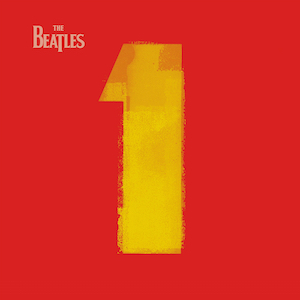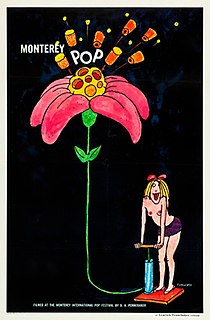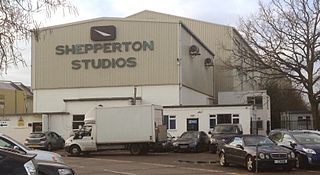Related Research Articles

The Who are an English rock band formed in London in 1964. Their classic lineup consisted of lead singer Roger Daltrey, guitarist and singer Pete Townshend, bass guitarist and singer John Entwistle, and drummer Keith Moon. They are considered one of the most influential rock bands of the 20th century and have sold over 100 million records worldwide. Their contributions to rock music include the development of the Marshall stack, large PA systems, the use of the synthesizer, Entwistle and Moon's influential playing styles, Townshend's feedback and power chord guitar technique, and the development of the rock opera. They are cited as an influence by many hard rock, punk rock and mod bands, and their songs still receive regular exposure.
A music video is a short film, of variable length, that integrates a song or album with imagery that is produced for promotional or artistic purposes. Modern music videos are primarily made and used as a marketing device intended to promote the sale of music recordings. There are also cases where songs are used in tie-in marketing campaigns that allow them to become more than just a song. Tie-ins and merchandising can be used for toys or for food or other products.

1 is a compilation album by the English rock band the Beatles, originally released on 13 November 2000. The album features virtually every number-one single the band achieved in the United Kingdom and United States from 1962 to 1970. Issued on the 30th anniversary of the band's break-up, it was their first compilation available on only one CD. 1 was a commercial success and topped charts worldwide. It has sold over 31 million copies.

Paul Vaughn Butterfield was an American blues harmonica player, singer and band leader. After early training as a classical flautist, he developed an interest in blues harmonica. He explored the blues scene in his native Chicago, where he met Muddy Waters and other blues greats, who provided encouragement and opportunities for him to join in jam sessions. He soon began performing with fellow blues enthusiasts Nick Gravenites and Elvin Bishop.
The Beatles' bootleg recordings are recordings of performances by the Beatles that have attained some level of public circulation without being available as a legal release. The term most often refers to audio recordings, but also includes video performances. Starting with vinyl releases in the 1970s, through CD issues in the late 1980s, and continuing with digital downloads starting in the mid 1990s, the Beatles have been, and continue to be, among the most bootlegged artists.

The Who have been with several labels over the years. In the United Kingdom and elsewhere outside North America, they were signed originally to Brunswick Records. In 1966, they moved to Polydor Records and took the rights to their Brunswick recordings with them. They created and moved to Track Records the following year with distribution by Polydor. They left Track in 1974 and returned to Polydor directly, remaining with the label ever since.

Monterey Pop is a 1968 American concert film by D. A. Pennebaker that documents the Monterey Pop Festival of 1967. Among Pennebaker's several camera operators were fellow documentarians Richard Leacock and Albert Maysles. The painter Brice Marden has an "assistant camera" credit, and Bob Neuwirth, who figured prominently in Pennebaker's Bob Dylan documentary Dont Look Back, acted as stage manager. Titles for the film were by the illustrator Tomi Ungerer. Featured performers include Big Brother and the Holding Company with Janis Joplin, Jefferson Airplane, Hugh Masekela, Otis Redding, Ravi Shankar, the Mamas & the Papas, The Who and The Jimi Hendrix Experience, whose namesake set his guitar on fire, broke it on the stage, then threw the neck of his guitar in the crowd at the end of "Wild Thing".
Mouse and the Traps is the name of an American garage rock band from Tyler, Texas that released numerous singles between 1965 and 1969, two of which, "A Public Execution" and "Sometimes You Just Can't Win", became large regional hits. The leader of the band, nicknamed "Mouse", was Ronny Weiss. Two of their best known songs, "A Public Execution" and a cover of "Psychotic Reaction", are not actually credited to this band but, respectively, to simply Mouse and Positively 13 O'Clock instead. Their tangled history also included one single that was released anonymously under the name Chris St. John. The band are not to be confused with the girl group Mousie and The Traps who recorded for Toddlin' Town records around the same time.
The Beatles Anthology is a documentary television series on the career of the Beatles. It was broadcast on UK television in six parts on ITV between 26 November and 31 December 1995, while in the United States it was seen as three feature-length episodes on ABC between 19 and 23 November 1995. It was released in greatly expanded form as an eight-volume VHS set and an eight-disc Laserdisc set on 5 September 1996. The series was re-released on DVD in 2003, with an 81-minute special-features disc.

The Kids Are Alright is a 1979 rockumentary film about the English rock band the Who, including live performances, promotional films and interviews from 1964 to 1978. It notably features the band's last performance with long-term drummer Keith Moon, filmed at Shepperton Studios in May 1978, three months before his death.
Alright Now is a British rock music television series made by Tyne Tees Television for ITV in 1979–1980.The show was named after the song "All Right Now" by the band Free. the series showcased both established and up-and-coming acts, with a focus on those from North East England; among them were Dire Straits and The Police, both enjoying their first chart successes. The show ran for two seasons. In 1982, Tyne Tees produced the similar music show The Tube for the then-new Channel 4.

Shepperton Studios is a film studio located in Shepperton, Surrey, England with a history dating back to 1931. It is now part of the Pinewood Studios Group. During its early existence the studio was branded as Sound City.
The Who at Kilburn: 1977 is a film of two live performances by British rock band the Who released as a two-disc DVD set on 17 November 2008 by Image Entertainment. The first disc included the band's performance at the Gaumont State Cinema on 15 December 1977, while the second disc featured the band's performance at the London Coliseum on 14 December 1969. The film restoration was produced by Nigel Sinclair's Spitfire Pictures in association with Trinifold Management.

The Doors 30th Anniversary Collection is a music compilation DVD by the American rock band the Doors, released in 1999 and 2001. It compiles three films previously released by MCA/Universal Home Video: Live at the Hollywood Bowl (1987), Dance on Fire (1985) and The Soft Parade - A Retrospective (1991).

Darryl Michael Roy Read was a British singer, guitarist, drummer, actor, poet and writer. In the late 1960s, Read was a member of Crushed Butler, considered by some to be amongst the forerunners of punk rock. He collaborated with musicians such as Bill Legend, Mickey Finn and Ray Manzarek.

Thirty Years of Maximum R&B Live is a 1994 compilation video of English rock and roll band The Who. The compilation covers the band live from 1965 to 1989 and is edited together with interviews with band members Roger Daltrey, John Entwistle, and Pete Townshend. A 4-disc compilation boxset called Thirty Years of Maximum R&B released in 1994 is also available.
R-Evolution is a 2013 music documentary featuring 19 live performances, TV performances and music videos by American rock band the Doors. The compilation features TV performances not previously released as well as original music videos from the 1960s, the 1980s and the 1990s. All archive footage was digitally restored and the sound was remixed and mastered for 5.1 by Bruce Botnick. It was released by Eagle Rock on November 25, 2013.

The Tommy Tour was a concert tour by the English rock band the Who. It was in support of their fourth album, the rock opera Tommy (1969), and consisted of concerts split between North America and Europe. Following a press reception gig, the tour officially began on 9 May 1969 and ended on 20 December 1970. The set list featured the majority of the songs from Tommy, as well as originals and covers.